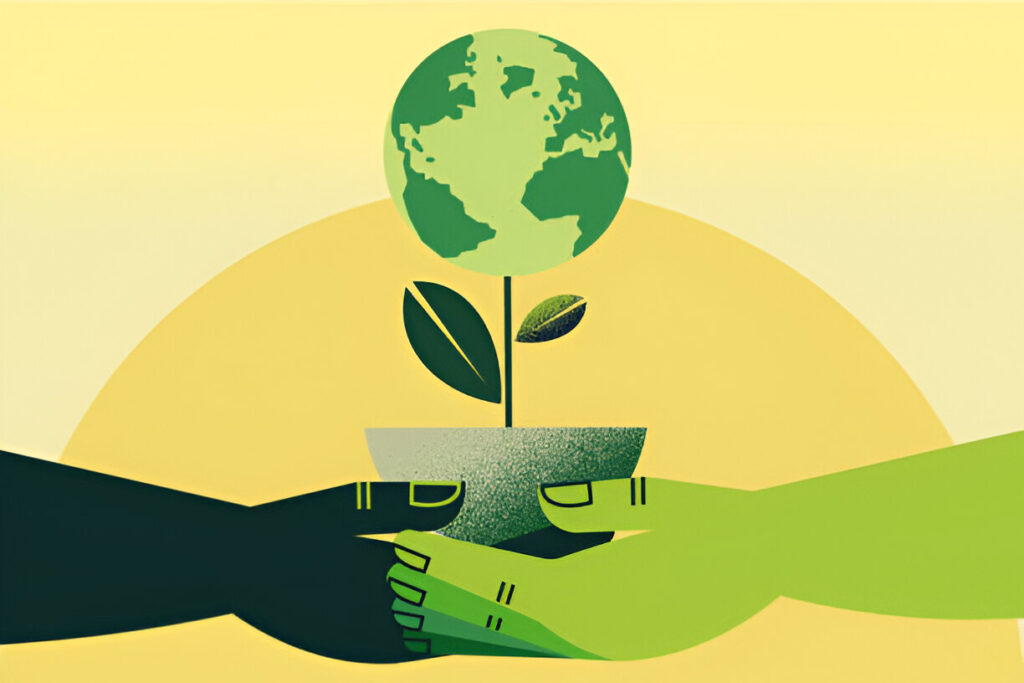Plastic is one of the inventions that man has invented to make his lifestyle easier. Due to the increase in excessive use of plastic in the world, a large amount of non-biodegradable waste is added to the environment. This situation has spread all over the world. Therefore, we must find a solution to this. Preventing plastic and polythene from entering the environment should be done at the household and institutional level before it can be done at the global level.

Corporate Initiatives and Policies around the world
Multinational companies setting goals to reduce plastic. (From UN)
- Swiss food giant Nestlé has committed to making all its plastic packaging 100 percent recyclable or reusable by 2025. The agency has also worked to encourage the use of plastic that allow for better recycling rates and eliminate or modify plastic compounds that make recycling too difficult.
- Coca-Cola, a giant in the market, produces 120 billion bottles a year. In January 2024, it launched a “zero-waste world” campaign. They have said that by 2030, the content of plastic bottle production will be 50 percent recycled, and they are looking to experiment with different collection methods to recycle its products, including supporting government and industry efforts.
- McDonald’s has also said that by 2025, all its packaging will be made from renewable and recyclable
- Unilever has committed to making all its plastic packaging entirely reusable, recyclable or compostable by 2025. Unilever endorses the Ellen MacArthur Foundation’s New Plastics Economy initiative and aims to publish the full panel of plastic materials used in its packaging.
- Danone’s Evian will make all its plastic bottles from recycled plastic by 2025.
- Dell wants to make its packaging 100 percent waste-free by 2020, using biodegradable elements. The company has already taken care to use other sustainable materials like bamboo in its manufacturing process. It requires that all packaging is eventually suitable for home composting or household collection.
- On World Environment Day, Volvo announced that from 2025, at least 25 percent of the plastic used in its new car models will be made from recycled
- British retailer has pledged to remove plastic packaging from its products by the end of 2023.
- Procter & Gamble, maker of Head & Shoulders shampoo, last year produced a shampoo bottle made from up to 25 percent recycled beach plastic. Their ambition is to make all its packaging recyclable or reusable by 2030.
- Fairy Liquid has already launched a new plastic bottle made from 10 percent recycled These bottles were developed in collaboration with TerraCycle.
- Swedish furniture chain IKEA plans to eliminate single-use plastic products from its stores and restaurants by 2020.The company has said it hopes to make all its products
Rules and Regulations
In any country, various legal orders and regulations are imposed to protect the environment. The large-scale release of waste into the environment can also have an adverse legal impact on organizations. It may result in the closure of establishments or the destruction of corporate reputations, even the cessation of production. Therefore, it is important to identify what laws and regulations currently exist for environmental conservation in Sri Lanka.- Central Environment
- National Environment Act No. 7 of 1980
- National Environment Act (Amended)No.56 of 1988
- National Environment Act (Amended )No.53 of 2000
- Quality management of plastic products
- Management of Municipal Solid Waste Disposal
- Promulgation and management of environmental protection
- Procedure on use of scheduled substances and management of chemical substances
- 1978 Constitution

Step by step say NO TO PLASTIC !
Global organizations are taking various measures to control and reduce the use of plastic and polythene on a large scale. Thus, it is the responsibility of the organizations to adapt the employees working in small-scale establishments to regular health practices and proper waste management process. According to that, as a first step- Bringing plastic from outside into the institution should be avoided.
- Advising employees to bring food and other items in eco-friendly reusable containers instead of plastic and polythene
- Introducing rules and guidelines necessary for sustainable development at the corporate
- Oversight of compliance with instructions and regulations is entrusted to the Human Resource Management System.
- In addition to educational activities for students, as an extra-curricular activity, establishing organizations to protect the school grounds and university
- Conducting educational workshops to create awareness about sustainable development and its importance.
- Using creativity to inspire students about environmental
